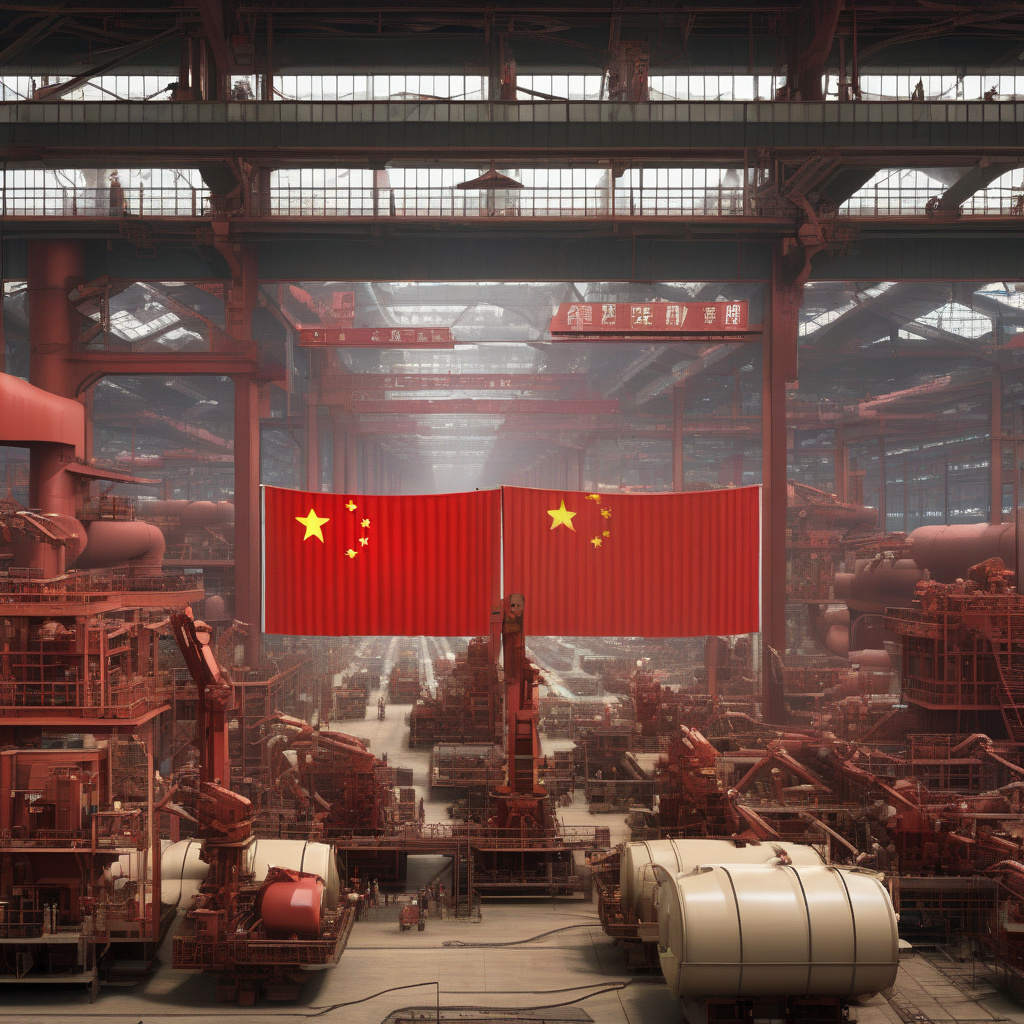China Halts Rare Earth Exports in Trade War Escalation
In the realm of international trade, the ongoing tensions between the United States and China have once again taken a significant turn. Critics warn that the latest US trade strategy, which has prompted China to halt its rare earth exports, is bringing chaos, not clarity, to global markets.
Rare earth elements are a group of 17 metals that are crucial components in various high-tech products, including smartphones, electric cars, and defense systems. China is the world’s largest producer of rare earths, accounting for over 80% of global supply. The country’s decision to suspend rare earth exports to the US has raised concerns about the impact it could have on the tech industry and other sectors that rely heavily on these materials.
The move by China is seen as a retaliatory measure in response to the escalating trade war with the US. The two economic giants have been locked in a trade dispute for over a year, with both sides imposing tariffs on billions of dollars’ worth of each other’s goods. The US recently blacklisted Chinese tech giant Huawei, further exacerbating tensions between the two countries.
Critics argue that the Trump administration’s trade strategy lacks coherence and is causing uncertainty in global markets. By targeting specific companies like Huawei and industries such as rare earths, the US is not only disrupting supply chains but also risking a broader economic fallout.
The halt in rare earth exports from China has sent shockwaves through the tech industry, with companies scrambling to find alternative sources for these crucial materials. The sudden disruption in the supply chain could lead to production delays, increased costs, and potential shortages of high-tech products.
One of the main concerns stemming from China’s rare earth export ban is its impact on the renewable energy sector. Rare earth elements play a vital role in the production of wind turbines, solar panels, and electric vehicle batteries. Any disruption in the supply of these materials could hinder the transition to clean energy and set back efforts to combat climate change.
In response to China’s export ban, the US and other countries are now looking to ramp up domestic production of rare earth elements. However, building up a domestic supply chain for these materials is a complex and time-consuming process that could take years to fully materialize.
The escalating trade tensions between the US and China are creating a ripple effect across global markets, leading to increased volatility and uncertainty. The tech industry, in particular, is feeling the brunt of the trade war, as companies grapple with supply chain disruptions and the prospect of a prolonged standoff between the world’s two largest economies.
As the trade war continues to unfold, it is essential for businesses to closely monitor the situation and adapt their strategies accordingly. Diversifying supply chains, exploring alternative sources for critical materials, and staying informed about the latest developments in trade policy are crucial steps that companies can take to mitigate the risks posed by the ongoing trade tensions.
Ultimately, the decision by China to halt rare earth exports underscores the interconnected nature of the global economy and the far-reaching implications of trade disputes between major powers. As the US and China navigate their complex trade relationship, the rest of the world watches with bated breath, hoping for a resolution that brings stability and certainty back to international markets.
trade war, rare earth, global markets, supply chain, tech industry
